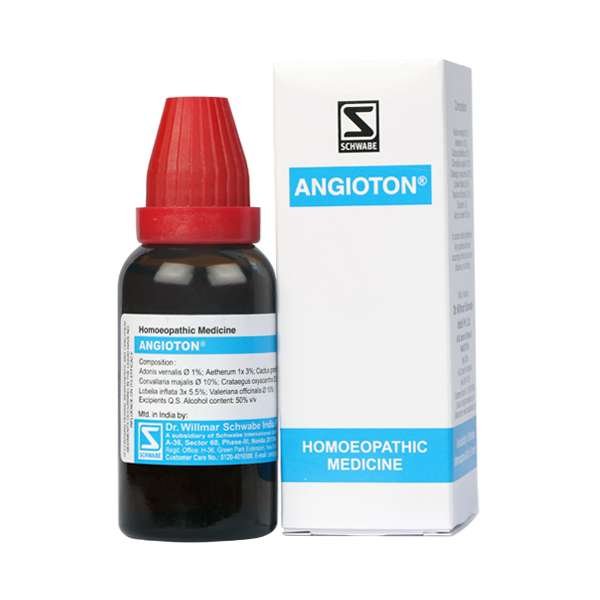ANGIOTON?
Introduction
Hypotension in adults is defined as a systolic blood pressure of 100 mm Hg or less. Symptoms are sweating, cold extremities, dizziness, blurred vision, and circulatory collapse. Low blood pressure can be idiopathic or acquired. It may be due to systemic diseases (e.g., heart disease, endocrine dysfunction, anaemia, hypovolemia, fever, convalescence, pregnancy, neurological disease), or medication-related. The patients who are not clearly hypotensive when tested supine should be tested in an upright sitting position. A drop in systolic pressure of more than 10-20 mm Hg with an increase in pulse of more than 15 suggests depleted intravascular volume. In cases of postural hypotension administering IV fluids and placing the patient in the Trendelenburg position is usually sufficient.
|
Indications: Hypotension and circulatory debility due to orthostatic circulatory problems, heart disease, exhaustive illness, operation or immobilisation. |
?
Composition
Adonis vernalis ? 1%
Etherum 1x 3%
Cactus grandiflorus ? 3%
Convallaria majalis ? 10%
Crataegus oxyacantha ? 50%
Lobelia inflata 3x 5.5%
Valeriana officinalis ? 10%
Excipient Q.S.
Alcohol content: 50% v/v
?
Proven indications of the individual ingredients in the sphere of claimed action:
Adonis vernalis is a well known homoeopathic medicine for heart problems after rheumatism or influenza, or for fatty degeneration of the heart, regulating the pulse and increasing the power of contractions of the heart and urinary secretions. Low vitality, with weak heart and slow, weak pulse are also covered. It is indicated for vertigo on rising, turning head quickly or lying down, precordial pain, palpitation, dyspnoea, irregular cardiac action, and marked venous engorgement.
Etherum is indicated for vertigo, depression of consciousness, chest pain and severe palpitation.
Cactus grandiflorus acts on muscular fibres of the heart and the arteries, producing very characteristic constrictions as of an iron band. It is indicated for depression and anxiety due to heart affections, congestive headaches, constriction in the chest, acute stabbing pains in the heart, weak heart, and low blood pressure.
Convallaria majalis is a heart remedy which increases the heart?s action and renders it more regular. It is used when the ventricles are over distended or dilated and venous stasis is marked. It is indicated for dyspnoea, dropsy, tobacco heart, orthopnoea, angina pectoris, and extremely rapid and irregular pulse. The indications also include palpitation.
Crataegus oxyacantha acts on heart muscle as a heart tonic. It is indicated for extreme dyspnoea and weakness, angina pectoris, valvular murmurs, accelerated, irregular or feeble pulse, cyanosis aggravated by exertion and cold extremities.
Lobelia inflata is a vaso-motor stimulant, increases the activity of all vegetative processes. It is indicated for conditions with constriction of the chest and epigastrium, leading to dyspnoea, vertigo, nausea and vomiting, and arrhythmia.
Valeriana officinalis is indicated for over-sensitiveness, nervous affections, spasms and convulsive movements of the diaphragm.
Directions for use
Dosage: Unless otherwise prescribed, Angioton? should be taken as follows:
10-20 drops should be taken 3 times a day before meals.
Children should be given half of the adult dose.
Note: For treatment of children, during pregnancy and lactation, and for patients with serious liver or alcohol problems, in particular, please note that this product contains alcohol.
Side effects: No side effects of Angioton? are known.
Contra-indications: No contra-indications for the use of Angioton? are known.
Interactions: No interactions between Angioton? and other products are known.
Presentation: Bottle of 30 ml.?










Reviews
There are no reviews yet.